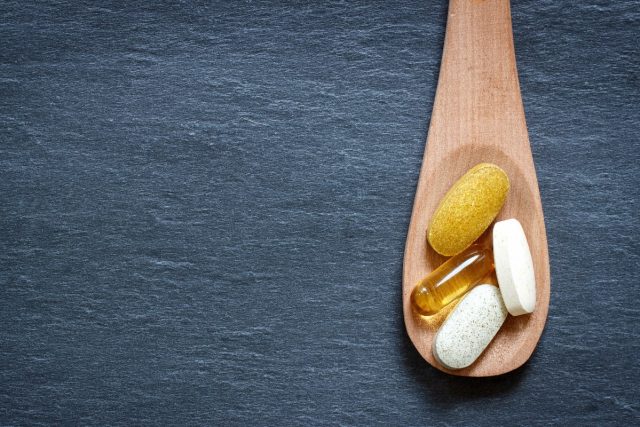In eyes with noncentral GA, proximity-based progression toward central macula was slower with randomization to antioxidants
By Elana Gotkine HealthDay Reporter
FRIDAY, July 19, 2024 (HealthDay News) — Oral micronutrient supplementation slows geographic atrophy (GA) progression in age-related macular degeneration (AMD), according to a study published online July 16 in Ophthalmology.
Tiarnan D.L. Keenan, B.M., B.Ch., Ph.D., from the National Institutes of Health in Bethesda, Maryland, and colleagues examined whether oral supplements slow GA progression in AMD in a post-hoc analysis of the Age-Related Eye Diseases Study (AREDS) and AREDS2 multicenter, randomized trials. A total of 392 eyes from 318 participants with GA were included in AREDS, and 1,210 eyes from 891 participants with GA were included in AREDS2. AREDS participants were randomly allocated to oral antioxidants; zinc (80 mg); combination; or placebo. AREDS2 participants were randomly assigned to lutein/zeaxanthin; docosahexaenoic acid/eicosapentaenoic acid; combination; or placebo. AREDS2 participants were also randomly assigned to alternative AREDS formulations: original, no β-carotene, zinc (25 mg), or both.
The researchers found that proximity-based progression toward the central macula was significantly slower in AREDS eyes with noncentral GA with randomization to antioxidants versus none (50.7 versus 72.9 µm/year). In AREDS2 eyes with noncentral GA, proximity-based progression was significantly slower with randomization to lutein/zeaxanthin versus none among those assigned to AREDS antioxidants without β-carotene (80.1 versus 114.4 µm/year). Area-based progression was not significantly different with randomization to antioxidants versus none in AREDS2 eyes with any GA.
“We’ve known for a long time that AREDS2 supplements help slow the progression from intermediate to late AMD. Our analysis shows that taking AREDS2 supplements can also slow disease progression in people with late dry AMD,” Keenan said in a statement. “These findings support the continued use of AREDS2 supplements by people with late dry AMD.”
Several authors disclosed ties to the pharmaceutical industry.
Copyright © 2024 HealthDay. All rights reserved.



















